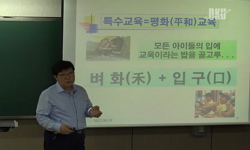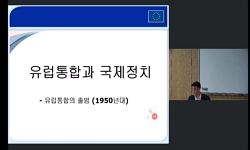France has historically been a country executing centralizing characteristicsand policies, notably adopting a long-term centralized administrative systemthat concentrates national power and decisions within the central government.This centralized regi...
http://chineseinput.net/에서 pinyin(병음)방식으로 중국어를 변환할 수 있습니다.
변환된 중국어를 복사하여 사용하시면 됩니다.
- 中文 을 입력하시려면 zhongwen을 입력하시고 space를누르시면됩니다.
- 北京 을 입력하시려면 beijing을 입력하시고 space를 누르시면 됩니다.

Socio-cultural analysis of the interaction between secularism(laïcité) and multiculturalism in France
한글로보기https://www.riss.kr/link?id=A108787836
-
저자
곽민석 (중앙대)

- 발행기관
- 학술지명
- 권호사항
-
발행연도
2023
-
작성언어
English
-
주제어
세속주의(라이시테) ; 다문화주의 ; 다양성 ; 동화 ; 통합 ; 상호작용 ; 국가 정체성 ; 중앙집권체제 ; secularism ; multiculturalism ; diversity ; assimilation ; integration ; interaction ; national identity ; centralization
-
등재정보
KCI등재
-
자료형태
학술저널
-
수록면
37-66(30쪽)
- 제공처
-
0
상세조회 -
0
다운로드
부가정보
다국어 초록 (Multilingual Abstract)
France has historically been a country executing centralizing characteristicsand policies, notably adopting a long-term centralized administrative systemthat concentrates national power and decisions within the central government.This centralized regime has restricted the powers of regional and local autonomy,ensuring consistency in the implementation of national policies and legislation,as well as regulation. This centralizing structure has historically contributedto the strengthening of France's national identity and integration. Since theRevolution and the 19th century, the correlation between the politics of secularismand multicultural policy in France has demonstrated complex characteristicswhile including conflicting aspects. Both policies reflect the task of balancingsocial diversity and national identity in France, and they interact or conflictaccording to their distinct aims and principles. Furthermore, the historicalcentralist inclination and the multicultural policy appear antagonistic on thesurface, but in reality they expose various forms of social and cultural interaction,of varying types, to form the diversity of French society. Secularism is basedon the policy of separation of Church and State. Established in 1905 by theLaw of Separation, it took shape to achieve the goal of forming a politicallyneutral state and restricting religious influence. As a result, concepts suchas ‘separation of state and religion’, ‘religious neutrality’ and ‘individual religiousfreedom’ took root in French society, influencing public policy, the educationsystem and the legal structure of the state. However, in contemporary society,as diversity becomes increasingly important, doubts and debates persist aboutthe application and scope of secularism. In particular, reflections and challengesconcerning how to reconcile the religious beliefs and culture of immigrantsand their children have become increasingly evident in recent times.On the other hand, multicultural policy aims to recognize and respect thediversity of French society, while enabling immigrants and their children tomaintain their cultural beliefs and identity within society. Multicultural policycan be implemented in various aspects such as education, language supportand the promotion of cultural diversity. Historically, like otherimmigrant-receiving countries, France also has a similar interaction betweenits history of centralized power and its multicultural policy. However, becauseof France's imperial and colonial history, conflicts and coexistence are evenmore marked. Policies that sometimes create tensions between religious freedomand democratic principles persist, making the situation even more complex.Today, France faces the task of maintaining a balance between secularismand multicultural policy more seriously than ever. At the same time, the Frenchgovernment and its citizens are continually seeking to strike a balance betweenthese two policies, rather than abandoning one in favor of the other. Thisis because this balance is seen as crucial to social cohesion, diversity managementand national security.France is striving to strike a balance between secularism and multiculturalpolicy, and to find solutions to this challenge. In doing so, France believesit is important to maintain a balance between these two policies, rather thansacrificing one at the expense of the other. In doing so, it seeks to developstrategies that simultaneously guarantee social integration, the managementof diversity, and national security and stability. Ultimately, the success ofboth policies rests on a national policy and popular will to harmonize theinteraction between secularism and multicultural policy, continuing to developan equitable and effective approach that respects and integrates diverse culturesand religions. This orientation of France has a profound meaning for us too,for at the dawn of an era of shifting borders, the conflicts, coexistence andsurvival of heterogeneou...
동일학술지(권/호) 다른 논문
-
한국 결혼이주여성의 스트레스 경험에 대한 현상학적 연구
- 중앙대학교 문화콘텐츠기술연구원
- 김주연
- 2023
- KCI등재
-
- 중앙대학교 문화콘텐츠기술연구원
- 김휘택
- 2023
- KCI등재
-
- 중앙대학교 문화콘텐츠기술연구원
- 여수빈
- 2023
- KCI등재
-
포스트 브렉시트, 인종차별과 이민자의 추방: 앨리 스미스, 『봄(Spring)』(2019)
- 중앙대학교 문화콘텐츠기술연구원
- 이행선
- 2023
- KCI등재




 KCI
KCI DBpia
DBpia






